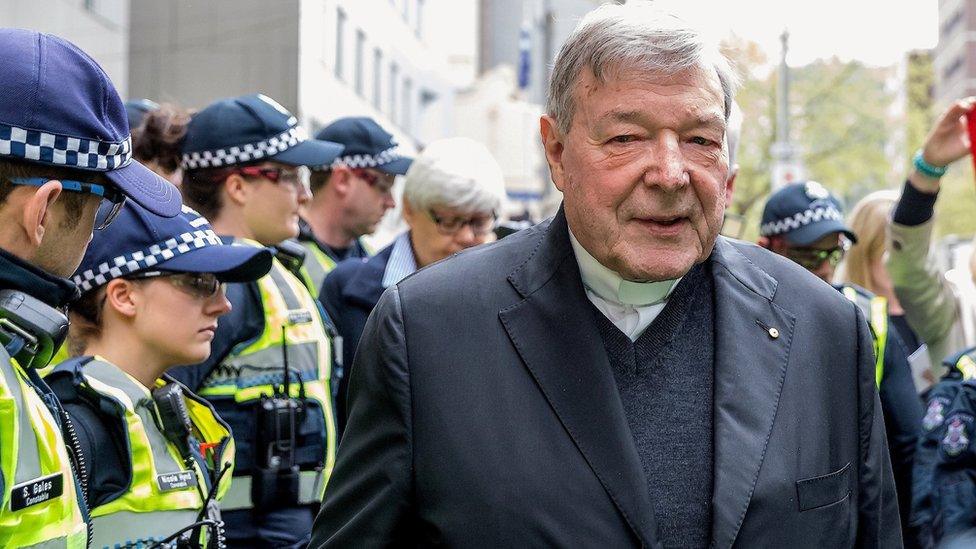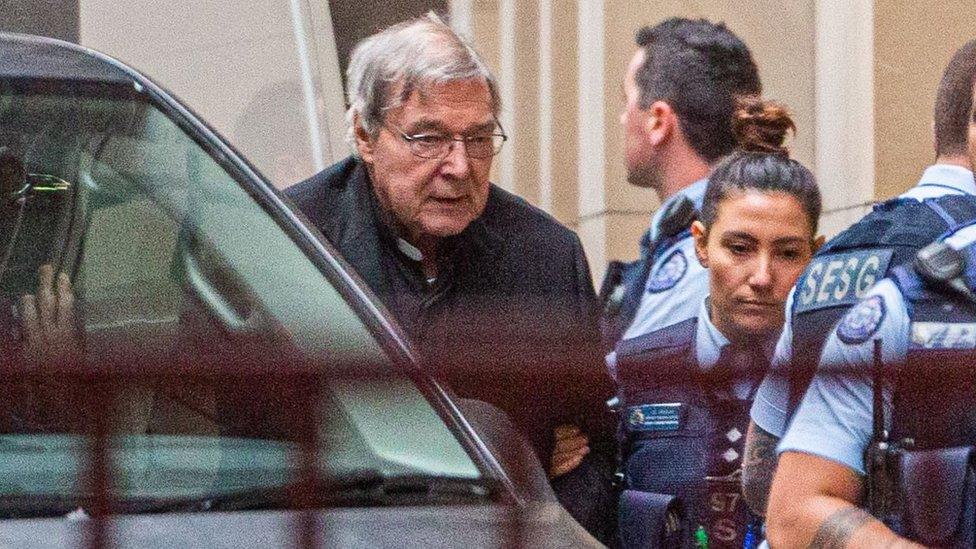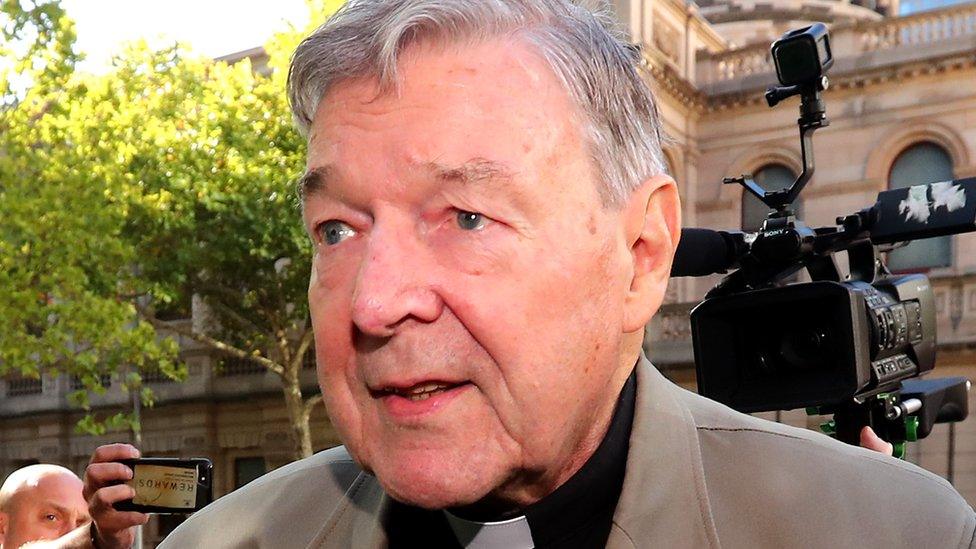George Pell: Cardinal to learn outcome of abuse conviction appeal
- Published

Cardinal George Pell was convicted by a jury in Melbourne last year
Cardinal George Pell is due to learn on Wednesday whether his convictions for child sexual abuse will be upheld by a court of appeal in Australia.
Pell was jailed for six years in March after being found guilty of abusing two boys in a Melbourne cathedral in the 1990s. He maintains his innocence.
The former Vatican treasurer is the most senior Catholic cleric to be convicted of sexual abuse.
If his convictions are quashed he could be freed or face a retrial.
Pell was unanimously convicted by a jury of sexually abusing the 13-year-old boys after a mass at St Patrick's Cathedral, and of abusing one of the boys again about a month later.
Three judges will rule on his challenge against the verdict in Victoria's Court of Appeal on Wednesday from 09:30 local time (23:30 GMT Tuesday).
Legal experts say different outcomes are possible even if the convictions are quashed. So what could happen?
If his conviction is upheld
Pell's conviction will stand if a majority of the judges believe he received a fair trial.
If that happens, he will remain in prison until at least October 2022 when he is eligible for parole, unless a final appeal against his conviction in the High Court of Australia were to be successful.
If the verdict is deemed 'unreasonable'
Pell's central ground of appeal is that the jury's verdict was "unreasonable" because there was insufficient evidence for them to convict him beyond a reasonable doubt.
Pell's lawyers argue that the jury relied too heavily on the "uncorroborated evidence" of the cleric's only surviving victim.
If this argument is successful, Pell's convictions will be quashed and he could be freed immediately.
In a 2016 police interview, Pell called abuse claims against him 'disgraceful rubbish'
Up to 11 of 40 appeals on such grounds have been successful in the state of Victoria in the past three years, University of Melbourne law professor Jeremy Gans told the BBC.
But prosecutors would also be able to challenge the appeal court's verdict in the High Court of Australia.
Could there be another trial?
Pell's defence team has submitted two other grounds for appeal, which they described as "back-up" options.
The first asserts that the trial judge wrongly prevented a defence animation from being shown as evidence during the trial.
The animation uses dots to represent people moving around St Patrick's Cathedral at the time of abuse. Pell's lawyers argue it demonstrates that the cleric had no opportunity to commit abuse.
The final challenge states that Pell was forced to enter his plea via video link instead of directly before a jury, denying him a fair process.
If the court agrees that these grounds were a fundamental error, Pell's convictions would be overturned and there could be a retrial.
- Published6 June 2019

- Published5 June 2019
